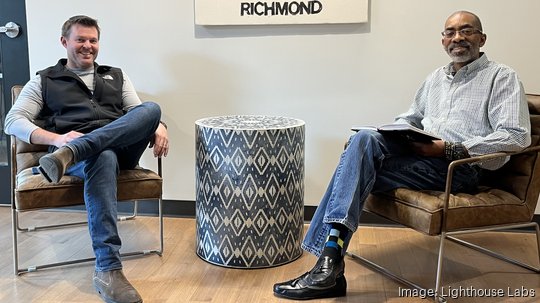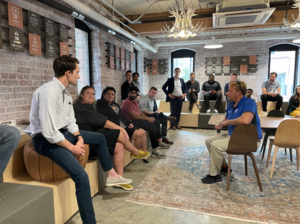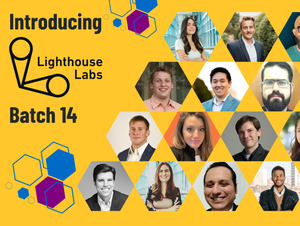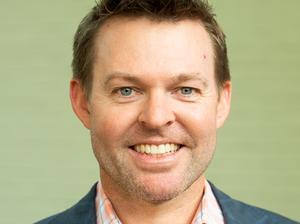
Paul Nolde’s move from managing director of Lighthouse Labs to lead 757 Collab and 757 Angels in Norfolk — and the appointment of Art Espey to replace him at the Richmond accelerator — has the two men hashing out ways the two organizations can work together for the betterment of both startup communities.
Espey and Nolde, longtime friends and both long involved with Lighthouse Labs, envision helping create a megaecosystem between Richmond and Norfolk. 757 and Lighthouse have similar roles in their respective entrepreneurial communities, both serving as accelerators for young companies, and the two regions have ecosystems in similar stages.
“With Paul going there and our relationship of working together on a lot of challenges in the ecosystem over the last 10-plus years, we have very open lines of communication,” Espey said. “We’re friends. We can talk openly about collaborative opportunities and find ways to make the ecosystem better.”
Nolde was handed the reins of 757 after the organization conducted a nationwide search to replace Monique Adams. He said the challenge of the new role combines two passions for him — working with entrepreneurs and investors. Last year, 757 announced a partnership with VentureSouth, one of the largest angel investment groups in the United States. Nolde said he will continue to live in Richmond. His new role in Norfolk doesn’t start until the end of the month.
Both Espey and Nolde said Lighthouse Labs is in a great position. Espey praised the work that Nolde and his staff have done to build and grow the organization. Lighthouse has evolved in recent years — under Nolde and his predecessors — and now focuses on later-stage companies more than in its early years.
“That is part of the process and part of the growth and maturity of the ecosystem,” Espey said. “The Richmond ecosystem is only a formal ecosystem for the last 10, 12 years. If you look at the studies that are out there and any of these so-called startup gurus, they say you really aren’t going to get any traction in the community for the first 20 years.”
Espey added that ecosystems throughout Central Virginia need to become less siloed. Communities today are not only competing for talent with other communities in the state, but they are competing with China, India as well as other states. That is why is makes sense for 757 and Lighthouse to work more closely together.
The two leaders are not exactly sure how they will collaborate. They beleive synergy exists in building a larger investor network but are unsure what role mentorship could play between the two organizations.
“If you look at it, both regions have challenges around working together,” Nolde said. “Each has regionalism. And what I have found is in Richmond, and to some extent at 757, is that the entrepreneurial ecosystem and the organizations that serve it seem to be a Switzerland of sorts.”
Espey said his short-term goal is to better understand the operational side of Lighthouse. He wants to continue the work that Nolde did of building an investor network and try new approaches to helping entrepreneurs. Above all, Espey said his priority is to “collaborate, collaborate, collaborate.”
“We are building on the successes that our predecessors created,” Espey said.


